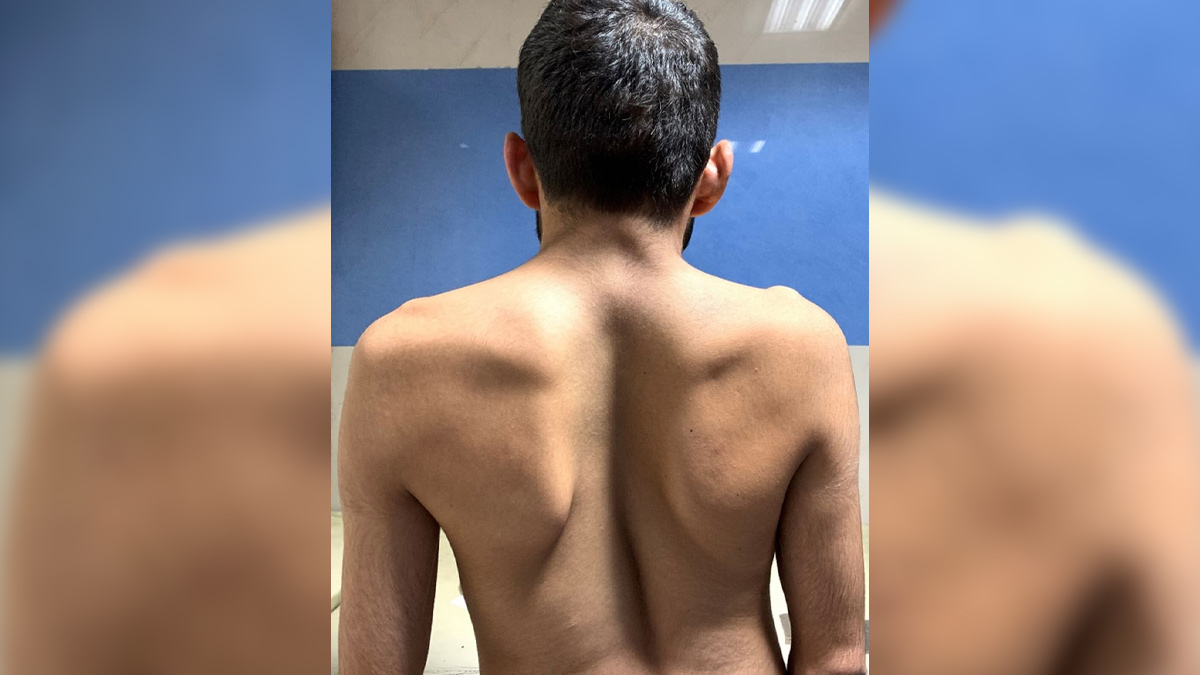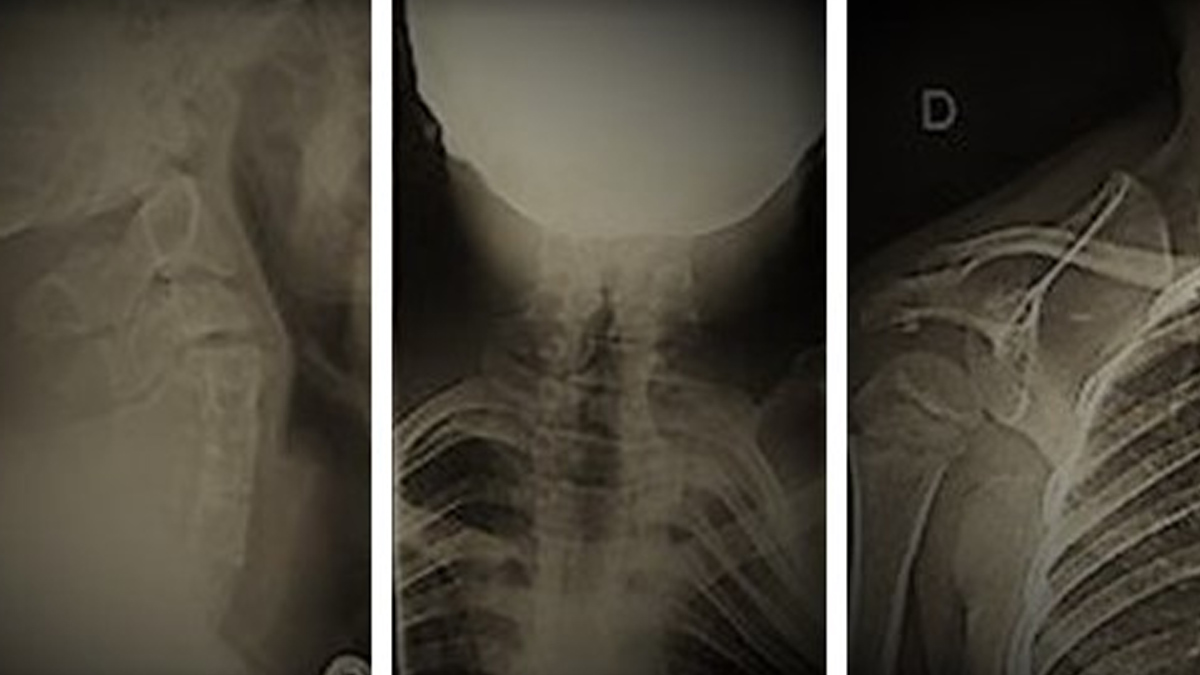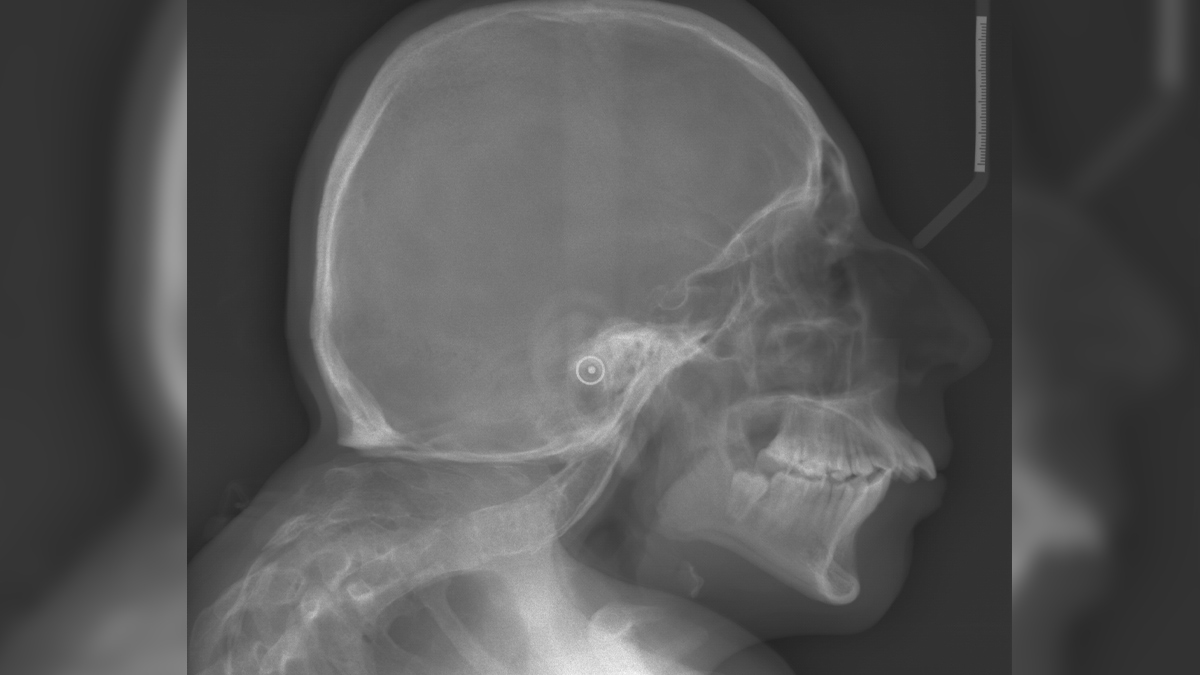-1749801251715.png)
Imagine looking at someone and noticing their neck seems shorter than usual, or that they have trouble turning their head from side to side. This could be a sign of Klippel-Feil Syndrome (KFS), a rare condition that affects the bones in the neck. People with KFS are born with some of their neck bones fused together, which means the bones are stuck to each other instead of being separate. This can make the neck look shorter and limit how much a person can move their head. For example, a child with KFS might not be able to look over their shoulder easily or may have a low hairline at the back of their neck.
Table of Content:-
Understanding Klippel-Feil Syndrome![Klippel-Feil Syndrome 2 - 2025-06-13T130719.402]()
Dr Abhishek Mannem, Spine Surgeon and Medical Director, Bangalore Hospitals, Bangalore, explains, “Klippel-Feil Syndrome is a rare congenital condition where two or more neck vertebrae are abnormally fused together. This fusion happens during fetal development, not after birth.” He adds, “The classic signs of KFS are a short neck, limited neck movement, and a low hairline at the back. These symptoms are often called the ‘classic triad’ of KFS.”
Dr Mannem further explains that this fusion occurs because the neck bones do not separate like they should when a baby is growing in the womb. “The exact cause can be different for each person, but scientists have found that changes in certain genes, such as GDF6, GDF3, and MEOX1, can play a role,” he says.
ALSO READ: Why the 75% Rule Matters: Training Insights for World Cycle Day 2025 and Better Health
How Klippel-Feil Syndrome Affects Neck Bone Development![Klippel-Feil Syndrome for neck development 3 - 2025-06-13T130717.026]()
According to the expert, in people with KFS, the bones in the neck, called vertebrae, do not separate properly during early development. Instead, they stay joined together, which is known as congenital fusion. This can change the shape of the neck and affect how the spine lines up. Because the neck cannot move as freely, people with KFS might find it hard to turn their head or look up and down.
This fusion can also make the spine less flexible and may put extra stress on other parts of the back. Sometimes, the fused bones can press on the spinal cord or nerves, causing pain, numbness, or even weakness in the arms or legs. In some cases, KFS is linked to other health problems, such as scoliosis (a curved spine), heart defects, or kidney issues.
A study published in the journal Orthopaedic Surgery highlights how early diagnosis and imaging, like X-rays or MRI scans, are important for managing KFS and preventing serious problems. The study also notes that people with KFS often need care from a team of doctors, including orthopaedic surgeons, neurologists, and physiotherapists.
Living with Klippel-Feil Syndrome![life with Klippel-Feil Syndrome 1 - 2025-06-13T130721.596]()
Living with KFS can be challenging, but many people lead full lives with the right care. Treatment depends on how severe the symptoms are. Some people may only need regular check-ups and physical therapy to keep their neck and back strong. Others might need surgery if the fused bones cause pain or press on the spinal cord.
Because KFS can affect other parts of the body, it’s important for people with this condition to have regular check-ups for their heart, kidneys, and spine. Early diagnosis and a team approach to care can help prevent complications and improve quality of life.
Conclusion
Klippel-Feil Syndrome is a rare condition that affects the neck bones, causing them to fuse together before birth. This can lead to a short neck, limited movement, and sometimes other health problems. Early diagnosis, regular monitoring, and a team of specialists can help people with KFS live healthy, active lives.
Also watch this video
How we keep this article up to date:
We work with experts and keep a close eye on the latest in health and wellness. Whenever there is a new research or helpful information, we update our articles with accurate and useful advice.
Current Version


